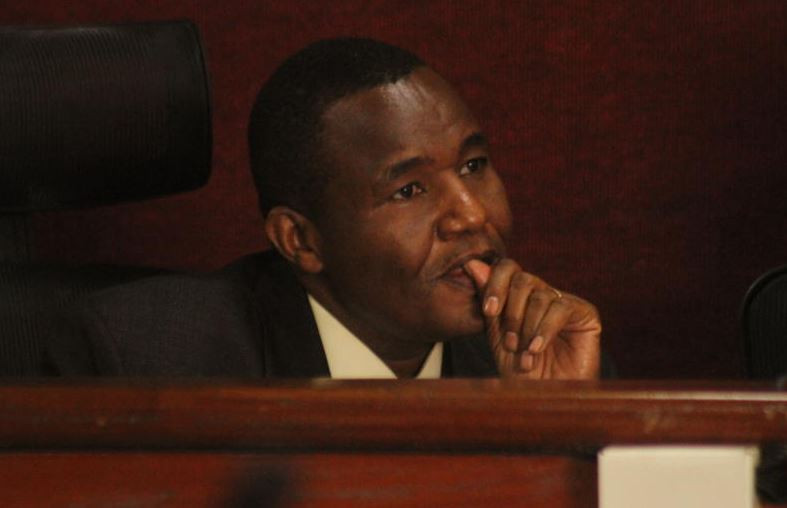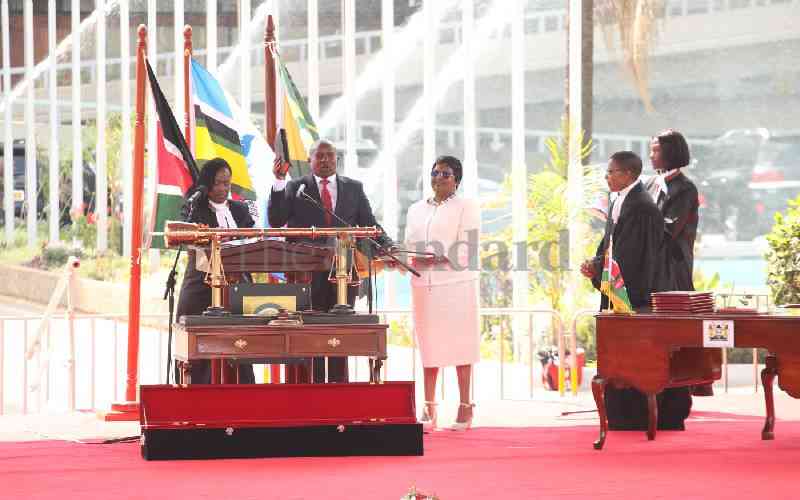The High Court in Nairobi on Thursday dealt Members of Parliament a major blow by freezing their umpteenth quest to retain control over the Constituency Development Fund (CDF).
While agreeing with Katiba Institute’s lawyer Joshua Malidzo, Justice Lawrence Mugambi directed that the MPs debate the Bill seeking to entrench the fund in the Constitution.
Still, they cannot hand it to the President to assent into law until the case on the legality of their new move is determined.
MPs beat the system when the court initially declared the Fund unconstitutional for violating devolution of power by adding ‘National Government’ before the CDF, but the structure and everything contested before remained the same.
However, the High Court declared the NG-CDF equally unconstitutional, striking yet another blow to them.
They were given until June 30, 2026 to wind it up, meaning this will be the last budget during which MPs will enjoy the privileges and control that come with the fund.
Unrelenting, they introduced the Constitution of Kenya (Amendment) Bill, 2025, which they hope will be the saviour.
Nevertheless, Justice Mugambi said that MPs would not suffer any loss if the Bills were not enacted into law.
He observed that critical issues had been raised in the case that could not be wished away.
Katiba Institute, The Institute for Social Accountability, Centre for Enhancing Democracy and Good Governance, Kenya Human Rights Commission, and Transparency International-Kenya filed the case.
Malidzo argued that the Constitution of Kenya (Amendment) Bill, 2025, is legally flawed and financially wasteful, asserting that the proposed amendments are unnecessary, risk undermining constitutional principles, and represent a misuse of public resources in a fiscally constrained environment.
“The push by the National Assembly to amend the Constitution, while within the sovereign prerogative of the Kenyan people, is presently being misused to entrench unnecessary matters without regard to the implications, in terms of wastage of public resources, on the sustainable delivery of essential services to the Kenyan people,” argued Malidzo.
According to the lawyer, Parliament has “jumped the gun” by initiating constitutional amendments without first enacting a referendum law, as mandated under Article 82 of the Constitution.
“Constitutional amendment contemplated under Chapter Sixteen of the Constitution is an arduous and convoluted process that cannot be undertaken without first setting the guiding statutory and procedural rubric,” he said.
Stay informed. Subscribe to our newsletter
Malidzo asserted that without a referendum law, there is no legal framework to guide how amendments touching on entrenched provisions, such as the structure of devolved government and functions of Parliament under Article 255(1)(h) and (i), should be handled.
The Bill, introduced in the National Assembly on March 12, 2025, is sponsored by Rarieda MP Otiende Amollo and his Eldoret East counterpart Samuel Chepkonga.
It seeks to entrench three national funds into the Constitution the National Government Constituency Fund (NGCF), the Senate Oversight Fund (SOF), and the National Government Affirmative Action Fund (NGAAF).
According to its sponsors, the objective is to provide these funds with constitutional status and ensure their permanence.
However, the petitioners argue that these funds already exist or can be legally established through existing legislation, making constitutional entrenchment unnecessary.
They contend that the proposed amendments distort the separation of powers and undermine the integrity of the Constitution.
Previously, a majority two judges held that the fund re-introduced by the MPs after the initial one, CDF was declared unconstitutional and violated the separation of powers.
The two Judges held that Parliament has no role in handling development. At the same time, they observed that MPs were encroaching on the roles set aside for the county governments.
According to them, the constituency is not a delivery unit. They were of the view that allocating funds leads to the waste of taxpayers’ money.
They also ruled that MPs failed to consult the Senate to develop the new law. They were of the view that it should end by June 30, 2026.
On the other hand, Justice Mugure Thande found it unconstitutional. She however departed on the lapse time. She ruled it should end a year earlier, on June 30, 2025. According to her, it would be a continuation of an illegality if it was allowed to survive another second beyond her deadline.
“The National Government Constituency Development Fund (NGCDF) as amended in 2022 and 2023 is hereby declared unconstitutional. NGCDF and all its projects, programmes and activities shall cease to operate on the stroke of midnight on June 30, 2026,”the bench headed by Justice Kimondo ruled.

























